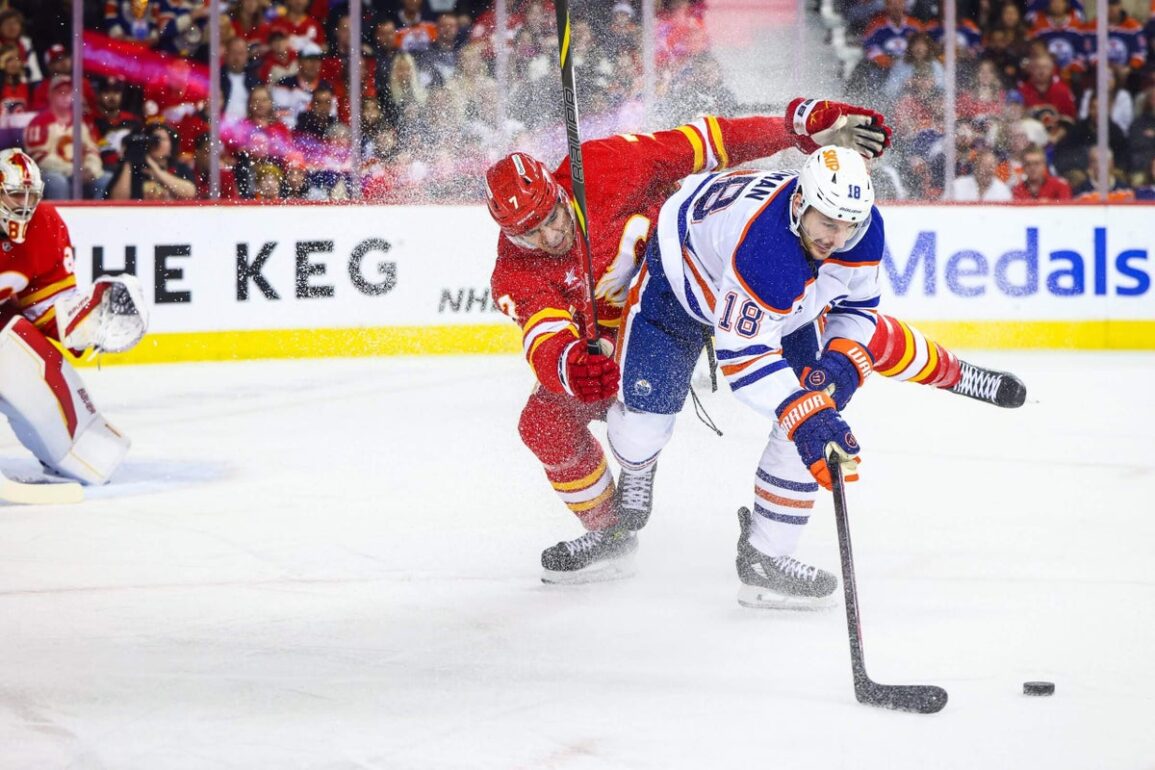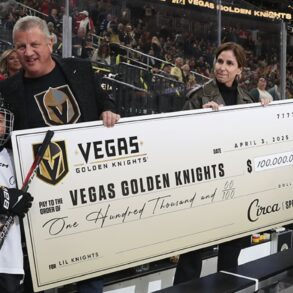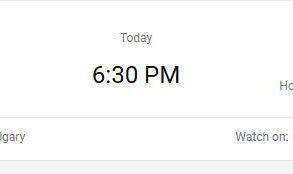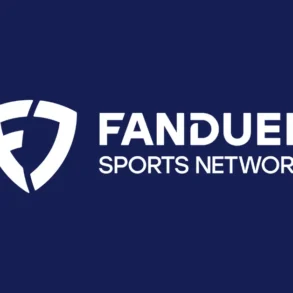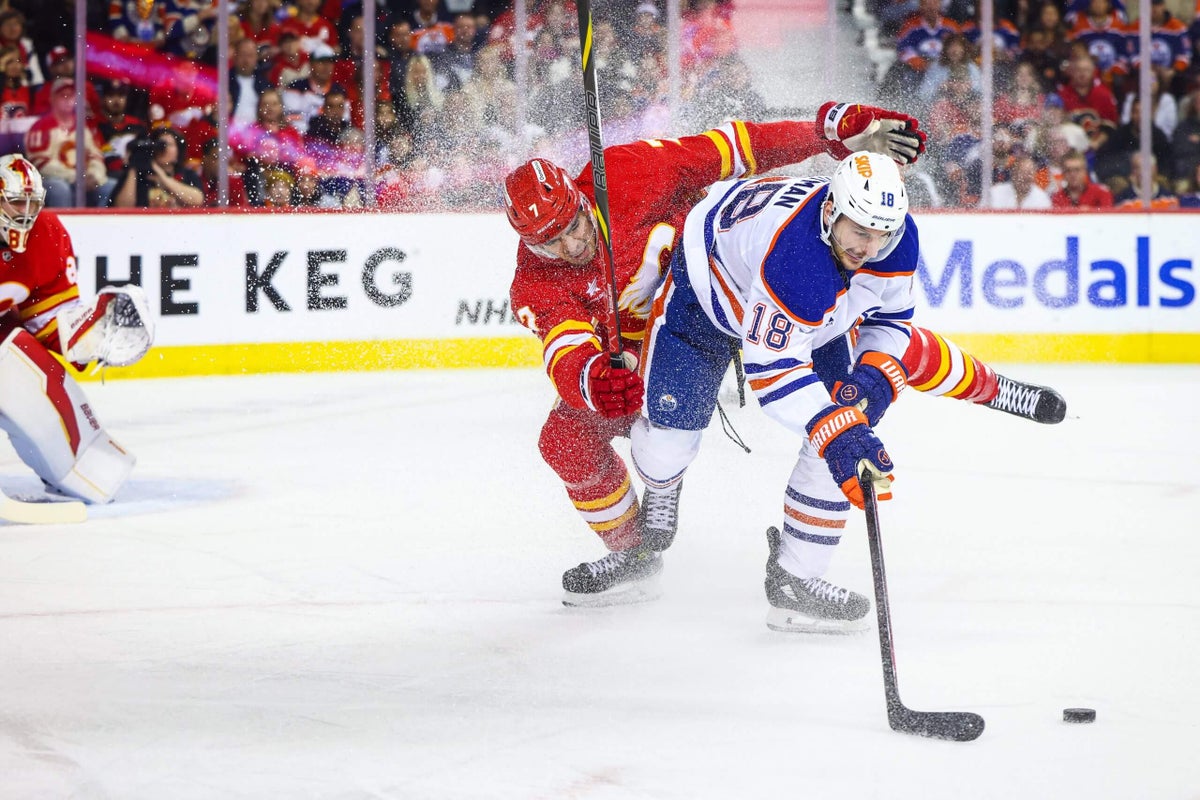
Live sports is television’s last sure bet.
At least, that was NHL commissioner Gary Bettman’s stance during a televised news conference Wednesday, hours after the league announced a 12-year, $11 billion CAD ($7.7 billion USD) deal with its Canadian national broadcast partner, Rogers Communications.
Advertisement
“Sports content, live sports, is the most valuable content,” Bettman said, speaking from a Rogers studio in Toronto. “There is nothing more valuable in this country than having the rights to the NHL.”
The new contract will go into effect for the 2026-27 season, after the current one expires, more than doubling the previous price of $5.2 billion CAD. It continues a partnership between Rogers and the NHL that has been in place since Nov. 2013, when the telecommunications giant first became the exclusive rights holder of the country’s most popular sport.
The Athletic digs into what readers need to know about Rogers and the NHL’s renewal:
How did the deal come together?
Neither side was looking to end the marriage.
Rogers Communications held a 60-day exclusive negotiation window that opened on New Year’s Day. Talks went well enough that the parties agreed to extend that window into March.
“The toughest part was working through the economics of it and making sure it worked for everybody,” Rogers president and CEO Tony Staffieri said Wednesday. “And we got there.”
Staffieri and Bettman shared a wry grin after that comment.
As justification for more than doubling its current financial commitment for the new deal, Staffieri cited a 50 percent viewership increase over the last 10 years. But he did not flatly deny the suggestion that the spike in costs could be passed on to consumers when specifically pressed whether that would be the case.
“The focus for us on this is growing the viewership,” Staffieri said. “If we do that well, which is what we’ve done over the last 10 years — significantly expanding the audiences — then the revenues follow in terms of advertising and subscription.”
What does it mean for viewers in Canada?
For the most part, things won’t change. Sportsnet will retain national rights across all platforms for regular-season, postseason and Stanley Cup Final games, along with special events. This includes broadcasts in all languages.
Advertisement
But it’s not as cut-and-dry as declaring that every NHL game belongs to Sportsnet.
As Staffieri said, the agreement allows for sublicensing content to continue “where it makes sense.” Rogers sports & media president Colette Watson added that discussions will be held with the public broadcast network CBC, which airs “Hockey Night in Canada,” about extending a deal beyond next season. And, as fans of Canadian teams know, Sportsnet and Bell Media’s TSN share rights for regional games.
All games not featuring Canadian teams will be available on Sportsnet’s platforms.
How about regional broadcasts specifically?
Sportsnet can increase its allotment of national coverage by converting the regional broadcasts of “up to 10 more games (for) certain teams,” Watson said. “That means fewer blackouts and more national opportunities.”
All of Sportsnet’s regional broadcasts for the Calgary Flames, Edmonton Oilers, and Vancouver Canucks can be converted into national games. The same applies for “a few extra games from the Winnipeg Jets and Ottawa Senators,” Watson said.
Regular-season games of the Toronto Maple Leafs, meanwhile, will still be evenly divided between Sportsnet and TSN, with Bell and Rogers jointly holding the regional rights. (Rogers also owns a 37.5 percent stake in Maple Leaf Sports & Entertainment, the team’s parent company.) And playoff games will still be entirely shown on Sportsnet, Watson added, going on to deliver a quote that might ring different to Toronto faithful when taken out of context.
“I can’t predict what the schedule will look like 10 years from now, eight years from now, and when the Leafs play on which night and whether that becomes one of the nights sublicensed,” Watson said. “But what you experience today as a Leafs fan is what you’ll experience for the next 13 years.”
Advertisement
And where does the CBC fall in all this?
Rogers currently has one year left on its current sublicensing agreement with CBC for “Hockey Night in Canada,” which started in 1952 and pioneered instant replay. On Wednesday, Watson expressed an openness for Rogers to renew the current arrangement — though she declined to detail specifics.
“We like our partnership with the CBC, and we value our partnership with the CBC,” Watson said. “And over the next 18 months we’ll look to see if there is a continued partnership there.”
Bettman may have applied some pressure by adding his two cents.
“From a league standpoint, we respect what the CBC had brought to the game,” Bettman said. “(‘Hockey Night in Canada’) is the longest-running program in the history of television in Canada. And I’m certain that our friends at Rogers will make the right decisions and have the right discussions with the people at the CBC.”
Will streaming services like Amazon Prime still be involved?
Staffieri was asked directly about sublicensing — hardly a new idea but an increasingly profitable practice — and emphatically said it would continue.
“We’ll look to it as a possibility and a strong possibility,” Staffieri said.
Amazon has demonstrated interest in continuing to air games in Canada, according to sources familiar with the platform’s approach to the NHL. Its “Monday Night Hockey” package has been well-received critically.
Can the news tell us anything about the next U.S. TV deal?
The NHL recently stepped away from the single-partner model on its current U.S. broadcasting deal, signing on with Disney (ESPN) and Warner Bros. Discovery (Turner Sports) for $4.4 billion. Those deals were for seven years and expire after the 2027-28 season.
Surely the NHL will surely look for a bigger payday on its next American contract. The 4 Nations Face-Off was a commercial success, its Canada-U.S. final attracting a television audience of 9.3 million viewers in America and serving as the most-watched non-NFL game on ESPN+. Future international events such as the World Cup of Hockey are planned, and the NHL can always offer those to intrigued U.S. broadcasters and/or streaming services.
Advertisement
The NHL will also need to weigh the pros and cons of sticking with a broadcast deal that also includes streaming rights (ESPN+ in this case), or striking out on its own — as MLB is reportedly considering.
At Wednesday’s press conference, Bettman said the U.S. and Canadian media markets are “not comparable in terms of the access to the number of outlets there are and the number of platforms there are.” He was responding to a question about sublicensing to streaming services in Canada. But Bettman is not known for his subtlety — and he could very well have been hinting that he expects the NHL to have multiple options in considering its next U.S. deals.
So what can fans expect from future NHL broadcasts?
Advancements in technology, specifically artificial intelligence, render any predictions about broadcast innovations a fool’s errand. Watson and Bettman conceded that point.
Still, Watson said, Canadian viewers can expect to see more on-ice cameras and the cable cam, similar to what was used for 4 Nations broadcasts. Bettman touted puck- and player-tracking technology, which the league has tapped to modernize the way statistics are cited on broadcasts.
The biggest difference between now and when the current deal was agreed to in 2013? Gambling. It’s everywhere and a driver of the sporting audience. NHL broadcasts on Sportsnet and TSN feature gambling elements throughout shoulder programming and mid-period segments. It seems logical that Sportsnet would incorporate more gambling elements into its new exclusive deal.
— The Athletic’s Richard Deitsch contributed to this story.
(Photo: Sergei Belski / Imagn Images)
This post was originally published on this site be sure to check out more of their content.





